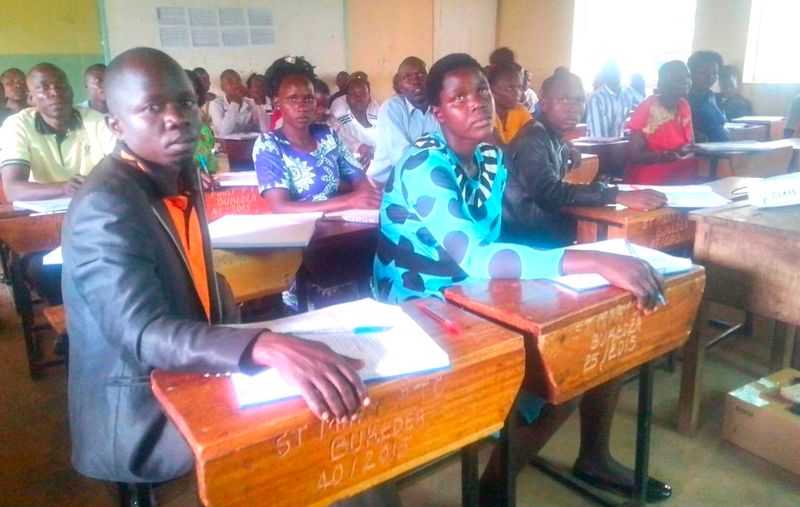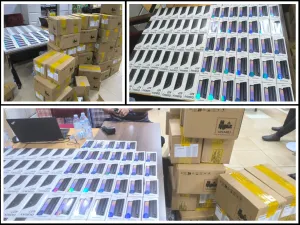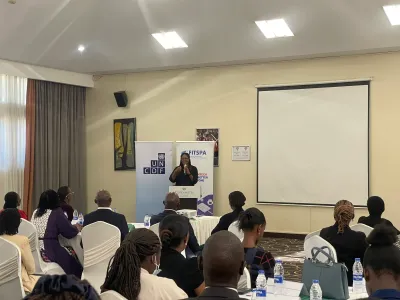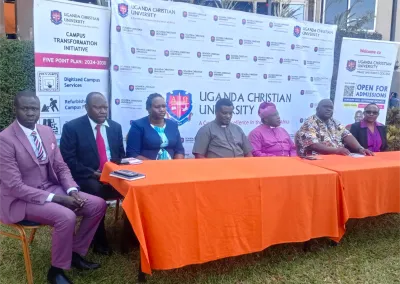
Bukedea district is currently training at least 304 Community Health Extension Workers (CHEWs), marking the official launch of a new cadre of professional health workers being introduced into communities by the government.
This development is part of a broader national strategy to address major public health concerns, particularly unsafe home births and the widespread trend of self-medication. According to officials from the Ministry of Health and partner organizations such as The Aids Support Organization (TASO), this shift represents a move away from the country’s traditional reliance on volunteer Village Health Teams (VHTs).
The CHEW initiative creates a paid, professionally trained and well-equipped health workforce designed to connect underserved communities with formal health facilities bridging a long-standing service gap.
Bukedea is one of eight districts selected for the pilot rollout of the program, alongside Bunyangabu, Kakumiro, Kalungu, Kassanda, Kisoro, Mbale, and Mitooma. This new model is reportedly influenced by successful community health frameworks adopted in countries like Ethiopia.
A key goal of the CHEW program is to reduce dependency on Traditional Birth Attendants (TBAs), whose services have been linked to Uganda’s high maternal mortality rate. The Ministry of Health recorded a maternal mortality ratio of 189 deaths per 100,000 live births in 2022, a statistic driven in part by the fact that about 25% of deliveries still occur outside of health facilities. This figure was highlighted in the 2022 Uganda Demographic and Health Survey (UDHS).
Dr. Eve Wabule, Ministry of Health Trainer, emphasized that CHEWs are specially trained to discourage home deliveries and instead refer pregnant women to appropriate health centers. This is aimed at avoiding preventable maternal deaths from complications such as sepsis and hemorrhage, conditions that TBAs are not equipped to manage.
Beyond maternal health, the CHEWs are also tasked with tackling the dangerous and widespread practice of self-medication. Research conducted in rural Uganda shows that self-treatment for common illnesses may affect up to 70% of the population. This behavior often results in incorrect diagnoses, treatment failures, and plays a major role in the rise of antimicrobial resistance (AMR). AMR is recognized as a significant threat in the National Action Plan for Health Security (2018–2023) A new plan for 2024–2029 has since been launched.
As part of their responsibilities, the new health workers will educate local communities about the risks of self-medication and the importance of seeking qualified medical care to help reduce AMR.
Each CHEW undergoes an intensive six-month training program, including two months of practical fieldwork, to prepare them for the demands of the role. To ensure they are fully equipped for community work, they will receive a package that includes a bicycle for mobility, a smartphone for real-time reporting, a blood pressure monitor, glucometer, and MUAC tape for assessing nutritional status.
Hellen Grace Tino, the LC5 councilor for Kabarwa, referred to the incoming CHEWs as "grassroots soldiers," reflecting their vital contribution to improving primary healthcare access at the community level.














Phillip Baraka
Leave a Comment
Your email address will not be published.